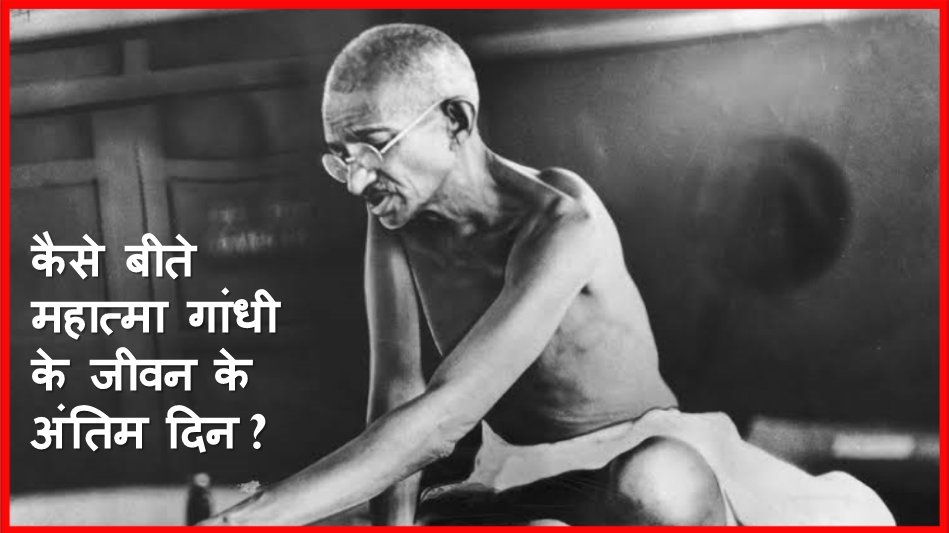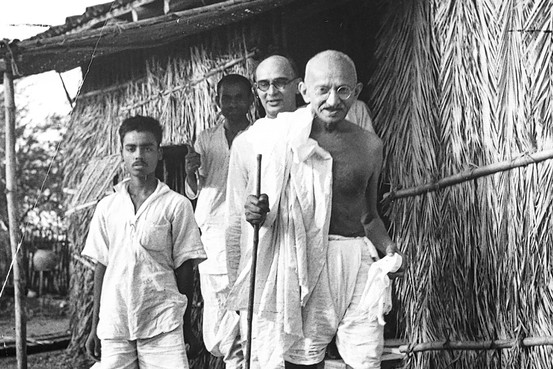Today, 150 years after his birth, Gandhi remains more relevant than ever. While we do see a continuity of direct and structural violence, there is also a change in the nature of violence we experience and inflict today. In today’s time, I believe, our collective apathy towards others is one of the biggest violence we propound. And hence, an understanding of the Gandhian idea of non-violence and his art of resistance, becomes a deeper quest to realize meaning and value in increasingly acrimonious times.
For Gandhi, non-violence is not limited to a mere rejection of the outward, visible acts of aggression, physical killing or direct violence. Infact, it goes much beyond this. It entails an internal disposition towards love and compassion—an ethic of care, that pervades every aspect of our being, including our words and thoughts. It is a spirit that stands against everything that is harmful, whether it is our words laden with anger or a behavior that deceives others. He rightly pointed out that, “our violence in word and deed is but a feeble echo of the surging violence of thought in us.” Even harming the environment because of our self-indulgent lifestyles is an act of violence. Any act that robs someone else of something is fundamentally himsa or violence. In that regard, our apathy and insensitivity towards social issues is violence. It is because our apathy makes us an accomplice to oppression.
India, today, is a victim to this collective apathy. Our tolerance of injustice and ignorance of atrocities inflicted on ‘other people’ is reflective of our violent hearts. Isn’t it an act of absolute violence to celebrate an acute humanitarian crisis and lock down of an entire people as ‘decisive policy making’ of the incumbent government? Isn’t it an act of violence to think that a boy stabbed to death on a train is not of concern because he is a Muslim? Isn’t it an act of violence to not be outraged at a gang rape of a young girl because she is Dalit? Isn’t it violent to accept the exclusion of more than a million people from the NRC even though they were born in this very country? Our collective apathy incapacitates us from empathizing and in turn emboldens and gives power to the structures and institutions of oppression. This insensitivity acquires a structural form which systemically oppresses and subjugates others.
But what lies at the heart of this collective indifference? Sociologically speaking, the mass culture of consumerism has pushed us into passivity and apathy. The generation of false needs has made us a slave to capitalism and snatched our abilities to be truly free, happy, reflexive and creative—virtues that are needed for empathy. The middle class mentality especially falls prey to this preponderance of a technocratic rationality of consuming more and more. Along with a neoliberal paradigm that turns human relations into competitive struggles for access to resources, we become crippled in our sensitivity and empathy towards others. Operating from our lesser selves, we lead lives of atomized existence, making our insensitivity our strongest weapon to inflict violence. And this apathy reflects in our everyday, personal interactions too, wherein the richness of human relations is reduced to transactional, mechanical and utilitarian exchanges. This violence of insensitivity has become so naturalized and internalized that its presence is highly invisibilized. Perhaps the biggest victim of our insensitivity is we ourselves. Deprived of compassion towards oneself and others, our violence becomes visible in our increasingly diminishing consciousness.
For Mahatma Gandhi, however, the root cause of this violence that breeds in our hearts and souls goes beyond the sociological and economic factors. For him, a complete reorientation of the human mind through a religiosity based on respecting the dignity of each human life establishes the way to combat the violence in our hearts. A deep prayer that strengthens love and compassion within and gives the strength to enact self-control over the inherent negative tendencies of greed, anger, stupidity and insensitivity, is itself non-violence. It is in this light that Gandhi says, “The moment he awakes to the spirit within, he cannot remain violent.”
When one awakens to this spirit— the spiritual power which has the courage to overcome fear, compassion to combat wrong and wisdom to discern violence, one becomes non-violent in the true sense. Thus, for Gandhi a true humanistic religiosity forms the core of this tectonic shift which can revolutionize and raise the collective consciousness of society. It is the power of religiosity that nurtures compassion and a deep introspection centered on self-control that fosters a spirit of non-violence. And this spirit of non-violence is not simply a personal virtue. Gandhi advocated that, “it is also a social virtue to be cultivated like other virtues.”
The power of this religiosity, which serves as an ethical control and becomes a guiding humanistic philosophy at both personal and societal level, is invisible to the naked eye. However, it impacts us deeply at an unconscious level. It germinates as an inner change first and then its conscious effects become visible in the social structures, economic processes and political climate of the society. Contrary to the Marxist idea of consciousness formation which posits that a change in material and social structures lead to equality, justice and emancipation, the Gandhian idea looks inside out. An inner change in the depths of an individual can become the force to change oppressive structures in society. Gandhi empathically advocated that along with the consequential changes in heart and mind, the non-violent spirit responds actively to the oppressive challenges without resorting to violence.
Thus non-violence, as Manmohan Choudhuri, an eminent Gandhian puts it, is an eclectic synthesis of, “the two basic urges of the human nature, love and bellicosity, and is an alternative to violent struggles”. Far from being a passive force, the nonviolent fighting spirit rests on a continuous action in the face of socio-economic and political injustice. Gandhi was convinced that the power of non-violence lay in its slow, invisible characteristic. However, he asserted that, “when it becomes active, it travels with extraordinary velocity, and then it becomes a miracle. So the mass mind is affected first unconsciously, then consciously. When it becomes consciously affected there is demonstrable victory…It (non violence) is not a mere emotional thing.”
However, what is the Gandhian art of resistance specific to the violence of indifference we see today? I believe the answer can be found in Gandhi’s emphasis on cultivating and maintaining meaningful human relationships. Deeply inspired by the book Unto this Last, Gandhi confirmed his view that an ideal and simple life was in part dependent upon the “‘invisible gold’ of companionship”. Even in his political and social movements, he never forgot to take into account the human background of the situation. An enriching engagement based on openness and flexibility forms the essence of a non-violent communication. Even in Gandhi’s personal life, one sees how important were these ‘bonds of relationship’ for him, whether it was his friends, co-workers and even his opponents. Whether it was Jinnah with whom he differed radically or Lilinthgow whose political agenda didn’t match with his or even Madan Mohan Malviya who disagreed with his political strategies— Gandhi’s interaction with all of them reverberated with a friendship, a cheerfulness and an understanding that outweighed the strain of their differences.
But how does cultivating meaningful relationships be an antidote to the violence of indifference we have fallen susceptible to? Why is it even important to maintain these bonds of relationship with others? I believe it’s because we can realize our true humanness and derive supreme fulfilment in our existence through our interaction with others. Our relationships with others based on empathy and love deeply enrich our lives, help us to transcend differences and even bring out our latent potential. In this light, Gandhi’s religiosity of non-violence opens the path for us to realize our innate humanity by overcoming the narrow confines of our lesser selves.
Aishani Khurana is pursuing Mphil in Sociology at JNU, New Delhi.






